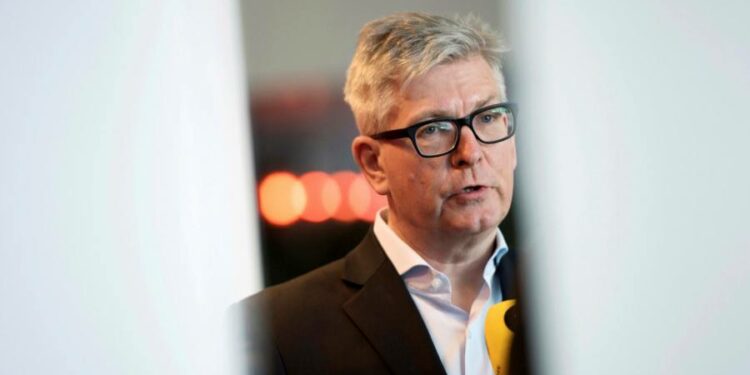Foreign shareholders are set to strike a blow at the chief executive and board of Ericsson over the Swedish telecoms equipment maker’s handling of possible payments to the Isis terror group that wiped a third off its share price.
Norway’s $1.3tn oil fund, the world’s largest sovereign wealth fund and a top-10 Ericsson shareholder, will vote against discharging chief executive Borje Ekholm and several other directors from liability at Tuesday’s annual meeting.
Cevian Capital, Europe’s largest activist investor and a top-5 shareholder in Ericsson, said on Monday morning it would also vote against discharge of all board members including Ekholm.
Glass Lewis and ISS, the two largest proxy advisory companies whose advice is followed by many investors, have both recommended that shareholders vote against Ekholm and other directors.
Ekholm said last month that payments were made for transport routes in Iraq in areas controlled by terror groups including Isis but that Ericsson could find no evidence whether the money went to Isis or not.
The US Department of Justice responded earlier this month by saying Ericsson had breached its deferred prosecution agreement — imposed in a settlement for bribery in five countries in 2019 — for the second time. Ericsson’s shares fell by a third in two weeks before recovering somewhat in recent days.
“Basically, we don’t trust them. We wonder whether they’re hiding something, otherwise they would come clean. The governance is dysfunctional,” one top-10 shareholder told the Financial Times.
Ericsson’s three largest shareholders — the Wallenberg family investment vehicle Investor, holding company Industrivarden, and Swedish pension fund AMF — will all vote to discharge Ekholm and the board from liability, all but guaranteeing Ericsson a majority.
Anders Oscarsson, head of equities at AMF, said his fund had lost lots of money and had many questions for Ericsson but that there was too much uncertainty around the issue to vote against the company.
“Because I don’t know if something has been done wrongly, or when it has been done wrongly, or who did it. You take that decision [on discharge] on the information you have when you take it. I don’t have the material to say you’re guilty,” he told the Financial Times.
Norway’s oil fund is taking a different approach. “We cannot discharge based on the information we have now,” it said.
Cevian justified its vote by saying: “We still lack the information necessary to make an informed judgement of what went wrong, why, and who should be held responsible.”
But the activist added that it remained “convinced of the strength and potential of Ericsson” and that it would vote for the re-election of the board and chief executive.
Cevian recently launched stinging criticism of Investor and Industrivarden and their ability to control the company through class A shares, which carry 10 times the votes of the normal class B shares.
“There’s a complete lack of trust in Ericsson’s corporate governance. It needs to be re-established,” Christer Gardell, a co-founder of Cevian, told the FT earlier in March.
The scandal has increased the pressure hugely on Ekholm, who until recently was widely praised for his turnround of Ericsson, re-establishing it as the leading network equipment gear maker ahead of China’s Huawei and Finland’s Nokia.
Cevian wants Investor and Industrivarden to each lose their deputy chair positions. Ericsson’s board issued a statement of support in Ekholm last week.
Oscarsson criticised the proxy voting agencies for recommending votes against certain directors without suggesting alternative candidates. “If you don’t trust people on the board, you have to say this is the person we want instead. I think we have to get the answers before we accuse anyone of making a mistake,” he added.











